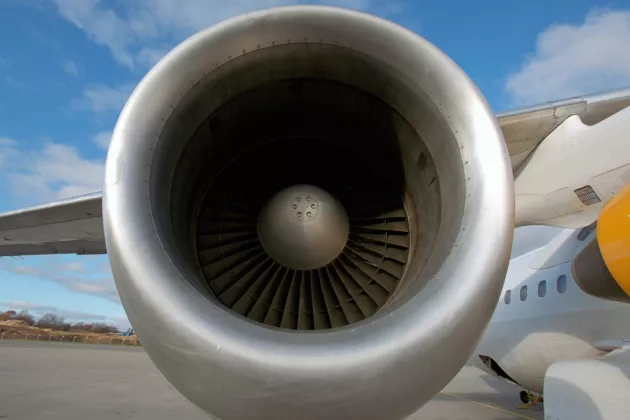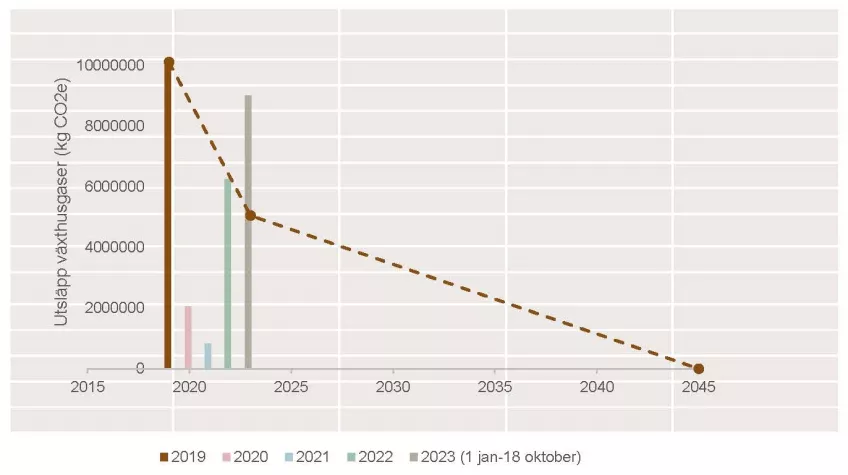In other words, the goal of a 50 per cent reduction by the end of 2023 is remote, and new activities are needed to reduce the climate impact of air travel, which is one of the largest single emission sources linked to Lund University staff activities.
Just over six months ago we summed up the climate impact from business travel in 2022 and could pleasingly note that we were still at a relatively low level compared with before the pandemic – approximately 60 per cent compared with 2019. We felt then that a 50 per cent reduction by the end of 2023 was not unrealistic and could be possible to fulfil.
It has now been shown, although it is only October, that air travel this year is almost up to the same level as in 2019. Only long intercontinental air travel has decreased compared with before the pandemic. At the same time, interest in train travel in Europe has increased due to easier booking procedures for rail travel abroad thanks to our agreement with a professional rail travel agency.
A number of different activities are being conducted within the Central Administration to support the faculties and equivalent in the work to reduce the climate impact from business travel, but without reducing the quality and internationalisation of research. This includes an initiative to facilitate the booking of train travel abroad, better feedback of air travel data to the faculties and spreading good examples of how organisational units can reduce their business travel-related climate impact.
Besides following current travel rules in which travel-free and fossil fuel-free options are to be prioritised www.staff.lu.se/support-and-tools/business-travel there is a lot that Lund University’s organisational units can do to reduce the climate impact of air travel, for example:
- clearer guidelines to staff on the choice of climate-smart means of transport and, for instance, encouraging the use of trains for long journeys and combining air travel with more activities in order to get as much as possible out of the trip
- have a specific pot to compensate for any extra costs such as night trains, hotels etc. if rail travel is chosen instead of air travel
- as early as the research funding application, include a sustainable choice of transport for travel relating to the research project
- develop the concept of regional hubs regarding conferences to reduce travel but nonetheless have the opportunity to network
- student initiatives to encourage an increase in rail travel
- increased internationalisation at home.
- Read about your collegues business travels in: LU Sustainable Travel Stories
- Read about what to think about when booking a trip



